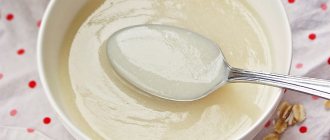What is the best water to drink to stay healthy?
18.06.2018
What is the best water to drink to stay healthy?
Water is a resource for ensuring life on Earth. It is a universal solvent and the basis for all biochemical processes. Water is inorganic, but it is capable of dissolving any substance, both inorganic and organic. Water occupies most of the human body. The existence of life on Earth without water is impossible. Its correct use is the key to a healthy and long life. In this article we will tell you what kind of water is best to drink, what rules to follow, and what its benefits are.
From this article you will learn:
- What water is better to drink
- What is the best time to drink water?
- What is the best water to drink in the morning?
- Which water is better to drink: boiled or raw?
- Which water is better to give to children: boiled or bottled?
What water is better to drink
Not all water that you can drink can have a beneficial effect on human health and well-being. Only a balanced number of macro- and microelements in water can benefit the human body. This will ensure water-salt and acid-base balance.
According to WHO (World Health Organization), water that can be drunk must meet more than a hundred points. Let's look at the key ones.
When assessing a liquid for its suitability for drinking and meeting the physiological needs of a person, the following criteria are used.
- Taste.
The chemical elements contained in water determine how it smells and what it tastes like. The smell can be influenced by the substances that were used to purify the water and the elements that were originally in it.
- Compound.
The water used for drinking must be free of harmful impurities - nitrates, chlorine, heavy metals, toxins, nitrites. The presence of living organisms (bacteria, fungi, viruses) is also unacceptable.
Articles recommended for reading:
- Types of water filters and their characteristics
- How to install a water filter - useful tips
- How to drink water correctly: practical recommendations
Purifying water with chlorine or other disinfection also has an effect. Bottled or tap water often does not contain enough macro- and microelements.
- Mineralization.
Water contains minerals. They have a positive effect on the human body, ensuring health and increasing life expectancy. The best water for cells is low-mineralized water.
For the body to function properly, the water consumed must contain the correct combination of macro- and microelements. It also should not contain an excess of minerals. For example, oversaturation with salts contained in mineral water can provoke the development of kidney stones. And distilled water, which many are accustomed to drinking, without any macro- and microelements, firstly, will not bring any benefit, and secondly, it will wash away beneficial substances from the body.
- Surface tension (ST) is the ability of water to dissolve substances and its permeability.
The surface tension level of tap or bottled water is 73 dynes/cm, the surface tension level of body cells is 43 dynes/cm.
Surface tension indicates the degree to which water is liquid. The lower this indicator, the easier it is assimilated. The water inside a person is quite liquid, which helps flush out harmful elements from the body and unhindered transportation of nutrients. This is the kind of water that can get into the cell.
- pH is a measure of the activity of hydrogen in liquid media, quantitatively expressing its acidity (weight of hydrogen).
In today's world, most people have a pH less than 7.0, which indicates an acidified state of the body. This is due to the environment and unbalanced nutrition. Most of the liquids that we are used to drinking and the foods that enter our body have a high level of acidity. For example, sugar, flour products (prepare bread), and soda have a pH = 3.
Scientists believe that due to increased acidity, cells begin to break down, which leads to tissue damage, the occurrence of various diseases and general aging of the body. Cellular building material does not enter cells under conditions of high acidity, so the membrane is destroyed.
Interesting observation! Biochemistry scientist Otto Warburg from Germany, winner of the Nobel Prize in 1931, came to the conclusion that a lack of oxygen in cells (pH < 7.0) provokes the transition of healthy cells into cancer cells. He found that cancer tumors do not grow in an environment enriched with oxygen with a pH level of 7.5 or higher. This observation suggests that cancer develops when the acidity of the fluid increases. His successors in the 60s of the 20th century proved that at a pH level of 7.5 or more, any pathogenic flora cannot multiply, and at this pH our immunity easily fights phenomena unfavorable to the body.
The answer to the question of what kind of water is best to drink to be healthy is alkaline (pH at least 7.5). A slightly alkaline reaction is characteristic of all main living environments (blood pH = 7.43, even a slight decrease in pH to 7.1 leads to death).
When neutral indicators are reached, the body is capable of self-healing.
- Oxidation-reduction potential (ORP).
The work and life of the body is carried out due to the action of oxidation and reduction, which are aimed at the addition and transfer of electrons.
If the ORP is positive, it means that an oxidation process occurs without electrons. If the ORP is less than zero, then reduction occurs in the presence of electrons. Thus, water has a positive and negative charge. Water with a positive charge is dead, it takes away our energy. Negatively charged (living), on the contrary, serves as a source of energy. Based on this, it becomes clear which water is best to drink.
Read the material on the topic: Is it possible to drink tap water?
What is the healthiest water to drink?
If we talk about raw, many people have different opinions. Some believe that it is better to buy bottled, even taking into account the rating of its manufacturers. Others calmly drink what comes out of the tap.
Let's take a closer look at which water is best for drinking.
Tap
It is pre-purified at enterprises that supply water to the population to such an extent that it meets all the standards specified in the relevant documents. But still it is not the best choice. If other options are not available, the following recommendations should be followed:
- practice boiling taking into account the principles described above;
- filter;
- stand for two hours, and drink only the top half of the settled liquid.
However, the latter method will not provide protection from harmful microorganisms and toxins .
Bottled
A good choice is bottled water. What it is? This is raw water that has been previously industrially purified. It is safe for consumption. It is also packaged in large bottles of 5, 10, 19 liters, etc. If we discuss the rating of bottled water, we need to take into account that it can be of the first and highest category.
- The first category is tap water purified by deep purification, taken from surface water bodies.
- The highest category is purified using gentle methods, disinfected with ultraviolet light, from an artesian well.
But before you buy just such a variety for the whole family, you need to clearly know what bottled water is and whether it is healthy. Provided that the cleaning was carried out correctly, its benefits are undeniable, and there is no need to boil it before consumption. But the reality is that many manufacturers, trying to save money, carry out certain stages of purification in bad faith. As a result, the product is often not as high quality as the annotations on the label indicate. And often low quality is confirmed by test purchases.
To determine which bottled water is the best and choose a good product, you need to consider the following:
- a manufacturing company that has been operating on the market for a long time is more reliable;
- conscientious manufacturers use high-quality packaging and labels;
- a kind of “rating” of the best bottled drinking water can be found out by talking with people - “popular” opinion is also important as an argument when choosing;
- To fully verify the quality of the product, it can be taken to a laboratory and ordered to be tested for safety and quality.
Rodnikovaya
Spring water, the benefits or harms of which are often discussed by users, undergoes natural purification, making its way through several layers of soil. In such a liquid, as a rule, there are no harmful impurities and, moreover, it is enriched with minerals as it passes through the soil.
When choosing just such water for children and adults, you need to take into account that those springs that are located near large cities, highways or industrial enterprises are not suitable in this case, since they are not clean and safe.
But there are a lot of springs, both widely known in certain regions, and small but very clean ones, from which they take water that belongs to the highest category in all respects. Some of these springs tend to have official passports and access is restricted.
You can also find spring water on sale - it is also packaged and sold in bottles. But there are often cases when ordinary artesian water is packaged by unscrupulous manufacturers instead of spring water. Its benefits and harms have already been described above. But in any case, artesian water is not spring water, so you should be very careful in your choice. In addition to following the recommendations that have already been described, you need to ensure that the label indicates the spring where the contents of the container were taken.
Those who prefer to collect water from a spring themselves must ensure that the container is always clean. Periodically, samples must be taken from the source and tested in the laboratory.
Mineral
Mineral water comes from natural sources and contains large amounts of salts and trace elements from deep layers of soil. As it passes through the soil, it gradually mineralizes. It is divided into three groups depending on the salt content in it:
- medicinal – with mineralization more than 8 g/l;
- medical dining room – with mineralization 1-8 g/l;
- dining room – with mineralization less than 1 g/l.
You can figure out why mineral water is useful, and which mineral water is the healthiest, by learning more about each of its varieties.
Dining room
You can drink it without risk, since it does not have an active effect on the body. It is useful to drink such mineral water for those who have recently suffered poisoning, intoxication, or acute intestinal infection. However, it is still not recommended to drink it constantly. And under no circumstances should you completely replace regular drinking mineral water. It should also not be given to children under 12 years of age unless prescribed by a doctor.
Healing mineral
It is prescribed by a specialist, always determining the dosage and period of use. Like medications, it has both indications and contraindications. Therefore, you should not consume such water without a specialist’s prescription.
Medical dining room
This mineral water is also prescribed by a specialist. But later the patient himself can use it in the same courses, adhering to previously received recommendations.
Filtered
Nowadays, filtered water is consumed very widely, and many homes have quick filters for purification. This is the most economical way to get quality liquid straight from the tap.
A specialist will help you choose the best filter for drinking water. You can purchase a flow filter that is built directly into the water supply system, as well as mobile jug-type filters.
But in order to get the most optimal result, you first need to analyze the water coming from the tap. Since each filter has a special cleaning basis, it is necessary to understand exactly what undesirable substances are in the liquid.
You can obtain a safe and healthy liquid at the output by adhering to the following conditions:
- choose the right filter to filter out specific substances;
- change cartridges in a timely manner, ideally without waiting for the time specified by the manufacturer to expire;
- Have samples tested in the laboratory from time to time to determine if filtration is helping.
Universal filters
They completely clean the liquid from bacteria and other harmful substances. Their operating principle is the so-called reverse osmosis. Are there any harm or benefits to the body when using such filters?
This water is safe because it is completely free of impurities. However, at the same time, it is also cleansed from salts. And distilled (salt-free) water is not very healthy.
Distilled water: benefits and harms
If you regularly consume such liquid, demineralization of the body develops. Liquid without salts will gradually remove them from the body. As a result, diseases of the heart, blood vessels, and skeletal system may develop. Premature aging of the body will also occur, and metabolic processes will be disrupted.
Some modern expensive filters are equipped with a system that provides artificial mineralization of purified water. However, those salts that were added to the liquid artificially are not absorbed as well as natural ones. In addition, they can adversely affect the function of the urinary system.
It is also necessary to take into account the fact that chlorine compounds, which are carcinogenic, penetrate back through the membrane. And this increases the risk of developing cancer.
Jug filters
They purify the liquid only from specific types of contaminants. And if a laboratory test has not been previously conducted to determine the presence of toxins and pollutants, such filtration may be useless. And pathogenic microorganisms can multiply in the cartridges, which subsequently only worsen the condition of drinking water.
Melt water: harm and benefit
Relatively recently, information that melt water is very useful began to be widely disseminated in various sources. In particular, much has been written about the fact that the molecular structure of such a liquid ensures its positive effect on the body. It is believed that it activates metabolism , reduces cholesterol in the blood, strengthens the immune system and improves physical and intellectual activity.
But in fact, under normal conditions it is impossible to obtain a useful “product”. After all, even if after defrosting the upper part should be separated, harmful impurities may still remain in it.
Kolodeznaya
Wells are still often used in villages. But very often well water is not safe, and if tested in a laboratory, it will not meet sanitary standards. Often this liquid contains a large amount of nitrates, iron, and sulfates. And sometimes pathogenic organisms that are dangerous to health are found in it.
It is extracted from surface aquifers, which are heavily polluted by wastewater. Rainwater also gets into the wells, polluting it even more. In addition, garbage and carcasses of birds and animals often end up in wells. Therefore, unfortunately, there is no need to talk about the safety and benefits of such water.
Indicators for measuring the parameters of some liquids
- Melt water: ORP = +95, pH = 7.0.
- Water infused with shungite: ORP = +250, pH = 6.0.
- Tap water: ORP = +160 (usually ORP is higher, up to +600), pH = 4.0.
- Boiled water: ORP = +218, pH = 4.5, after 3 hours: ORP = +465, pH = 3.7.
- Mineral water: ORP = +250, pH = 4.6.
- Black tea: ORP = +83, pH = 3.5
- Green tea: ORP = +55, pH = 4.5.
- Coca-Cola: ORP = +320, pH = 2.7.
- Coffee: ORP = +70, pH = 5.0.
- Coral Main water: ORP = -150/-200, pH = 7.5/8.3.
- Microhydrin, H-500: ORP = -200/-300, pH = 7.5/8.5.
- Arkhyz: ORP = +60, pH = 6.5.
- “Benefit”: ORP = +165, pH = 5.5.
- Essentuki-Aqua: ORP = +112, pH = 6.0.
- Elbrus region “Glacial melt water”: ORP = +130, pH = 5.5.
- Uva pearl: ORP = +119, pH = 7.3.
- Iceberg: ORP = +150, pH = 7.0.
- Aqualine: ORP = +170, pH = 6.0.
- “Springs of the Caucasus” Essentuki 17: ORP = +120, pH = 7.5.
- German “Selters”: ORP = +200, pH = 7.0.
- “Silver Falcon” from Suzdal: ORP = +144, pH = 6.5.
- “Alpica” (in glass containers): ORP = +125, pH = 5.5.
- “Alpica” (in plastic container): ORP = +150, pH = 5.5.
- Quata: ORP = +130, pH = 6.0.
- Svetloyar: ORP = +96, pH = 6.0.
- Belgian “SPA”: ORP = +138, pH = 5.0.
- French “Evian” from the Alps: ORP = +85.
- Aparan: ORP = +115, pH = 6.8.
- Kazakhstani “Calipsic”: ORP = +136, pH = 5.5.
- “Volzhanka”: ORP = +125, pH = 6.0.
Read material on the topic: Water aeration - what is it and why is it needed
What is the best time to drink water?
- People always need water.
The norm for an adult is approximately 2 liters per day. This means water, not any liquid. Other drinks and soups will not replace water. Each person has his own norm - depending on the diseases he has and his weight (the more weight, the more water he needs). It is important to understand not only what kind of water to drink, but also when.
- Morning glass of water.
In the morning after getting up, you need to drink 200-300 ml of water and have breakfast 1.5 hours later. This will replenish the fluid deficiency, activate and flush the gastrointestinal tract system, and prepare it for work. Eastern healers are convinced that drinking on an empty stomach is as important as washing and brushing your teeth.
- A glass of water before eating.
You should also drink water 30 minutes before eating. This is done with the aim of starting the gastrointestinal tract and preparing it for work. People with various gastrointestinal diseases, such as ulcers, etc., especially need to drink before meals.
- It's better to stay hungry than not drink.
The feeling of hunger can easily be confused with the feeling of thirst, since the sensations in a person are approximately the same. Many overweight people came to this because they misinterpreted brain signals, confusing the feeling of thirst with hunger. The consequence of dehydration is often obesity.
- After meal.
If you want to know what kind of water is best to drink during meals, then here is the answer - during meals and immediately after it, you should not drink liquid at all. At least 40 minutes should pass between eating and drinking, and it is better to refrain from drinking for the next hour.
- For the night.
During sleep, the body's water reserves are not replenished in any way. Fluid consumption occurs during breathing or through pores with sweat. To ensure your body has enough water for a long period of time, you need to drink water 30 minutes before bed. If kidney function is impaired, you should refuse liquids at night and drink the entire volume before 17-18 hours.
- Drink whenever you feel thirsty.
You need to drink high-quality clean water, without additives and without gas.
- Before playing sports.
Water supports metabolic processes. During training they accelerate, a lot of fluid is lost through sweat. Therefore, its deficiency should not be allowed during physical activity.
- Not just any liquid, but water.
Alcoholic drinks, coffee, tea remove fluid from the body. Therefore, drinking a cup of coffee will not replace water and will not replenish fluid deficiency, but rather, on the contrary, will lead to it. Milk, juice, soup are food. They are also not able to replace water.
Read material on the topic: Disinfection of drinking water
What happens if you drink little water
The value of water has been known for a long time. If you violate the drinking regime, diseases will begin to develop that could be avoided if you understand what kind of water is best to drink, when and in what volume. Lack of fluid impairs the body's performance, affecting all organs and life-supporting processes.
Fluid deficiency in the body is manifested by the following symptoms:
- feeling of thirst, dry mouth;
- disruptions in the gastrointestinal tract, constipation, increased acidity;
- weight gain;
- headaches, migraines;
- salt deposits;
- sand in the kidneys;
- the presence of sand in the gallbladder and liver;
- vision problems;
- fragility and dryness of hair, nails, peeling on the body;
- cracking joints.
Mainly, lack of water leads to disruption of brain activity, because it consists of 80% water. With its lack, its regulatory and cognitive abilities decrease.
According to many doctors, dehydration provokes the following diseases:
- overweight;
- dry cough;
- allergic reactions;
- bronchial asthma;
- vision problems, cataracts;
- cardiovascular diseases;
- depression;
- diabetes;
- dementia.
If the body experiences water deficiency for a long time, the brain stops sending signals about the need for water. This occurs due to an excess of waste and toxins that are not removed from the body. Thus, the entire life support system does not work correctly, which is why various diseases begin to develop.
If you drink enough water, your urine will be clear and practically colorless and odorless. Exceptions can only be made when consuming food or medications with dyes. If you do not follow the drinking regime, the urine develops an odor and its color becomes bright yellow. The less fluid in the body, the richer the color of the urine, turning to orange if severe dehydration occurs. People taking diuretics will also have colorless urine.
Lack of fluid in the body complicates the work of the kidneys, which secrete large amounts of toxic substances in conditions of water deficiency. Due to this, the body is not properly cleansed, which leads to its intoxication, which provokes the occurrence of various diseases and a constant feeling of fatigue.
The problem of excess weight can be solved if you drink water instead of any drinks. If you give up sugar-containing drinks (juice, soda) in favor of water, your daily calorie intake will decrease. Water instead of tea or coffee will protect you from unnecessary sweets (sweets, cookies) that we are used to consuming during tea drinking. Among other things, if you follow a drinking regime, the body’s metabolic processes will be normalized, which will contribute to weight loss.
Lack of water negatively affects the functioning of the cardiovascular system. According to research, people who drink 2 glasses of water a day are much more likely to have a heart attack than those who drink the daily amount.
If you follow a drinking regime, the risk of malignant tumors such as breast, colon, and bladder cancer also decreases.
Read material on the topic: How to purify water from lime
Drinking water for various diseases
For different diseases you need to drink different water. Let's consider which one and when.
For kidney stones
Low-mineralized water, rich in sodium, calcium, bicarbonate and magnesium, is considered the most beneficial for the kidneys.
It has a diuretic effect and anti-inflammatory effect.
You can get rid of kidney stones not only through diet, but also by increasing the amount of water you consume.
To do this, you can use a certain type of mineral water:
- with phosphaturia, you need slightly acidic water without phosphorus;
- for oxalates and losses, a slightly alkaline variety is needed.
For gastritis
To reduce stomach acidity, you need to take purified H2O on an empty stomach 1.5-2 hours before meals 3 times a day:
- under any conditions you can drink table mineral water;
- the medical dining room is suitable for long-term treatment;
- The therapeutic course is prescribed by a specialist.
Also, the type of mineral water for gastritis depends on acid formation:
- if the secretion of hydrochloric acid is low, then you need a sodium chloride type of water;
- if it’s high, it’s alkaline.
Read more about choosing water for gastritis in this article.
For cholecystitis
If you have cholecystitis, the morning should begin with 1-2 glasses of clean water.
Before each meal, experts recommend drinking 1 more glass.
Taking high-quality mineral water promotes the outflow of bile , normalizes the quality of secretions and eliminates unpleasant symptoms of the disease:
- in case of hypotension of the bile ducts, water with an increased level of salts is needed;
- for hypertension - with low salt levels;
- for hypotension – enriched with sodium.
In case of poisoning
In case of poisoning, it is recommended to drink copious amounts in order to quickly clear the stomach and replenish the deficiency in the body. It is better to choose regular boiled or filtered water to cleanse the intestines of toxins. A saline solution is used to induce vomiting.
Whether mineral water helps with poisoning can be found in this article.
For pancreatitis
If you have pancreatitis, you are allowed to drink water saturated with metal salts and gases. This is mineral water.
Doctors advise using 2 main types of it for any diseases of the gastrointestinal tract and pancreatitis:
- medicinal;
- medical dining room.
A detailed article about water for pancreatitis is here.
For liver diseases
For liver diseases, it is important to choose mineral water belonging to the chloride-bicarbonate group.
The composition should be dominated by sulfate compounds, which the body needs in case of any malfunction of the liver.
water in glasses:
- after waking up on an empty stomach;
- before meals 20-30 minutes.
For high blood pressure
The water level affects the volume of circulating blood and its composition. Abundant consumption helps normalize blood pressure.
For hypertension it is better to use:
- unsalted mineral drinks without carbonation - these can be table varieties with minimal mineralization;
- purchased filtered water;
- home purified water.
It is better to refuse tap and boiled water. For hypertension, the minimum volume of 1.5 liters can be doubled and drink up to 3 liters per day.
Attention! It is imperative to obtain permission and recommendations from a doctor, taking into account age, concomitant diseases, and individual characteristics of the human body.
What is the best water to drink in the morning?
In the morning you need to drink water at room temperature. It’s even better if the temperature of the liquid is equal to the temperature of the human body, i.e. 36 degrees. The closer the water temperature is to a person’s temperature, the better it is absorbed by the body, and he will not have to expend additional energy to heat it.
Structured and natural water from sources is also easier to digest. Making structured water is not difficult - you first need to freeze it and then melt it.
How much water to drink in the morning
If the question of what kind of water is best to drink in the morning is beyond doubt, then it is impossible to say unambiguously how much you should drink. This is influenced by various factors: a person’s weight, the climate in which he lives. In any case, a glass of water in the morning is enough to prevent many diseases.
Why drink a glass of water in the morning
A glass of water in the morning awakens our body and starts processes to remove waste and toxins. At night, fluid consumption occurs (excretion through the skin, night trips to the toilet, during breathing). Therefore, you need to drink water in the morning to replenish its deficiency and restore balance.
If you drink water in the morning, it will speed up metabolic processes and activate the gastrointestinal tract. If you drink water on an empty stomach, it will be absorbed easier and faster by the body, which will have a beneficial effect on the functioning of every cell.
Melted
An excellent option to quench your thirst. After freezing, most inorganic impurities disappear from the water, and the structure of the water becomes most suitable for the cells of our body. Of course, you can drink any clean water, but the body spends additional resources on absorbing the “wrong” liquid and wears out ahead of time. And melt water is one of the few drinks that are absorbed by cells “without extra effort.” This water should be drunk 1-2 times a day, 200 ml at room temperature.
How to cook?
Pour a liter of water into an enamel pan and place it in the freezer. After 8–9 hours, pierce the top layer of ice in the center of the container and drain the water that has not yet frozen. Melt the remaining ice at room temperature, add a spoonful of lemon juice and drink once a day.
The kidneys and heart suffer. Why can't you drink water uncontrollably? More details
Which water is better to drink: boiled or raw?
Raw water contains a variety of microelements, so it is best to drink it. Due to the special distribution of molecules, such water is considered “living”. It prevents the formation of free radicals in the body and supports the regenerative functions of cells. But in addition to useful substances, it may also contain harmful elements (bacteria, viruses, toxins), so there are cases when heat treatment is inevitable.
Boiling water will do no good to a person and may even cause harm. She is considered "dead". This is caused by the following reasons:
- the oxygen level in such water is much lower;
- When boiled, the salts necessary for the body fall into an insoluble precipitate;
- chlorine, which is added to tap water, becomes toxic when exposed to high temperatures and causes cancer;
- Thermal treatment of water changes its structure, and within a day bacteria appear in it.
If you are discussing which water is better to drink and whether it is possible to drink boiled water, you need to compare all the arguments “for” and “against”. Raw water is not always properly purified and does not contain substances harmful to human health. The advantage of boiled water is that it is safe to drink from this point of view.
However, when boiling water, a number of rules must be followed. Before boiling the water, let it sit for about two hours. There is no need to resort to prolonged boiling of water; it is enough to bring its temperature to 100 degrees. This will disinfect the liquid and preserve some of the minerals. It should also be remembered that this water cannot be stored for a long time.
Read the material on the topic: Filter under the sink: recommendations for choosing
Distilled
This is water that has been purified from almost all mineral salts dissolved in it. It would seem that since distilled water is exceptionally pure, drinking it is very useful. This is partly true. Distilled water is not absorbed by the body, but it attracts mineral salts. This helps cleanse the body, especially the kidneys. For preventive purposes, it is recommended to drink 400 ml of this water 1–2 times a week on an empty stomach, warmed to room temperature. After drinking water, it is advisable not to eat for 2 hours.
Daily use of distilled water for drinking is not recommended, as it leads to a lack of important microelements, especially calcium and magnesium.
How to cook?
It is impossible to make distilled water at home. Water passed through reverse osmosis filters has similar properties.
Is tap water safe to drink?
Many people wonder whether tap water is safe to drink.
This liquid meets sanitary and chemical standards, and its performance is normal. These parameters are achieved thanks to modern disinfection and cleaning installations. But existing water supply systems are wearing out, which entails an increase in chlorine and iron in tap water. In the worst cases, bacteria and organic matter can be found in it.
In many settlements, especially in large cities, water is obtained from land sources - reservoirs, rivers, lakes. Modern purification systems make it possible to bring the composition of water to the required levels, but it is better to drink underground water.
Which water is better to drink, cold or warm?
To determine which water is best to drink, let’s look at how warm and cold liquids affect the body. Warm liquid has more advantages, so let's list them first.
Benefits of warm water for the body:
- Digestion.
People are used to drinking warm drinks in the morning, without even thinking about why their temperature is that way. Coffee lovers drink it for the caffeine it contains, which gives energy and promotes wakefulness. However, warm drinks initially start the digestive system. If you are concerned about your health, it is better to avoid coffee and drink warm water instead, because coffee and tea have a diuretic effect and remove fluid from the body.
- Detox.
Warm water can flush harmful substances from the body. If you add lemon to it, the resulting drink will serve as an excellent antioxidant. Detoxing the body is very simple - there are many familiar products that help remove toxins and waste from the body. You can drink water with the addition of not only lemon, but also cinnamon, ginger, mint leaves, and cucumber slices.
- Pain relief.
Warm water improves blood circulation, which will help cope with headaches or inflammation. Water at room temperature will help soothe menstrual pain.
Warm water also has an expectorant effect, so it is recommended to drink it for ENT diseases.
- Fight constipation.
Due to lack of water, many begin to face digestive problems and wonder what kind of water is best to drink for constipation. Warm liquid is suitable here, because... it can calm the intestines.
Benefits of cold water for the body:
- Indispensable after sports.
If you do not know what kind of water is best to drink during training, it is recommended to drink cool water. This is due to the fact that during intense exercise, body temperature rises, and in order to restore it, you need to drink moderately cold water.
- Helps in the heat.
By the same principle, you should drink cold liquid when heatstroke or thirst occurs. Cold liquid will lower your body temperature.
The above facts suggest that you should drink warm water most often. Most of all, this affects the functioning of digestion. If you drink a cold liquid when there is undigested food (especially fatty food) in the digestive system, it will be more difficult for the body to digest the food, and it will also require additional energy to raise the temperature of the liquid to body temperature.
But external factors, such as environmental conditions, should also be taken into account. In the hot summer, being in a stuffy room or on the beach, a cool liquid is more suitable. It is better to drink water at room temperature in the morning, before and after meals. In all other situations, you should pay attention to what kind of water you want - warm or cold.
Read material on the topic: Examination of drinking water
Which water is best for a child to drink: natural, bottled or boiled?
The decision to let your child drink water from springs will not be the only correct one. At a minimum, this is not always possible. Secondly, such water is subject to pollution, like any other, due to pollution of the environment as a whole. Therefore, it must be tested before it is considered suitable for drinking.
Choosing boiled water is also a mistake. Because when boiling, not all harmful microorganisms die, and the most dangerous contaminants are not killed at all.
For example, chlorine, when boiled, is converted into even more dangerous substances that can harm the child’s central nervous system.
Perhaps your child needs to drink bottled water?
Most parents, wanting to give their child the best, use bottled water. Manufacturers assure that it is safe for children. But when choosing what kind of water is best for a child to drink, it is worth considering that bottled water deteriorates if stored improperly (for example, when exposed to sunlight), so preservatives are added to it, which has a negative effect on the child’s body. Also, the plastic from which bottles are made can release toxins that are hazardous to health.
And one more significant disadvantage that you should think about is that most brands of baby water do not meet GOST standards, which is confirmed by research by Roskontrol.
What is the opinion of doctors? Pediatrician Lyudmila Mosolova o.
What to give to babies?
Until the child is three years old, he should be given bottled water of the highest category. It must be boiled. When the child is three years old, he can drink it without boiling. But you need to buy only a high-quality, proven product.
However, there is another opinion, less conservative: after a year you can start giving your child clean, unboiled water, provided that the parents are completely confident in its quality.
Experts, as a rule, do not recommend buying a special one for children. After all, it contains few minerals and salts, and it can “pull” them out of the child’s body.
In any case, conscious people should ensure that the whole family consumes only high-quality and proven liquid. After all, health and well-being directly depend on this.










